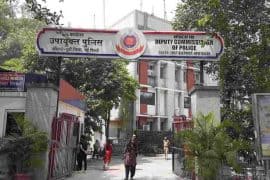What is necessary – cultural unification or the recovery of culture? Read ahead as the writer weighs these arguments with her Sindhiyat experience.
“May I, a grandchild of Partition, be able to walk the streets of Anarkali…”, read a postcard addressed to the city of Lahore at an exhibition based on Partition held at the National Gallery of Modern Arts. Ghar, Zameen, Jaidad of millions, all lost in the wake of a tragedy that still largely engulfs our nation. Apart from the daily vendetta, what engulfs us more is the culture, and that, for me as a writer, is the language.
So while answering questions arising from confusion over my surname, the dialogue outside is overtaken by the dilemma inside. Sindhi? But how? Just because of the surname? Because the river after which the entire community was named is almost on the verge of drying up and the place called Sindh was left almost 75 years ago. So what’s left of all is the language, the shores of which are drying up quickly.
Even if you go somewhere empty-handed, you will take your language with you”, said my Urdu Professor.
In the case of Sindhi, I guess it travelled too long, losing its tids and bits on the way, where it got disintegrated to the extent that we only got Johnny Lever in almost all movies adding Sai at the end of each sentence in the name of cultural representation and cracking some chindi jokes. So it does make one sad when you realise the collective damage that so many of such communities have suffered at the altar of history, at the hands of those who tried to shape it according to their whims? Such whims today talk of “our” heritage, culture, and its preservation; funnily such, “our” does not aim at identifying the dynamic and diverse reality of this land but rather in the imposition of one culture, one language. That’s how politics is, the language used by poets and lovers to carve out confessions of love can be shaped fluently at the behest of ideologies to spew hatred in disregard of those very languages.
Linguistic hegemony has been a major tool for controlling the narratives, be it the attempt to impose Urdu on Eastern Pakistan– later Bangladesh, a Bengali speaking region that became a major reason for the partition of Western Pakistan and Eastern Pakistan– or the unannounced but underlying duel of Urdu and Hindi that goes on amidst the deemed “champions” of Linguistics.
In this fight for hegemony, no language appears to be a winner. Hindi imperialism does no good to Hindi with its negligence in academia or the ignored writers in the publishing scene, whose achievements are not even appreciated by these very “champions of Hindi”.
A lot has been lost already. Recovering and preserving what remains can’t be done with the imposition of one language. Attempts to promote linguistic diversity should be made with utmost necessity, not just with language centres but with the sharing of what is “ours”, rather than the imposition of what is being termed as “ours” on a national level.
Kashish Shivani




Comments are closed.